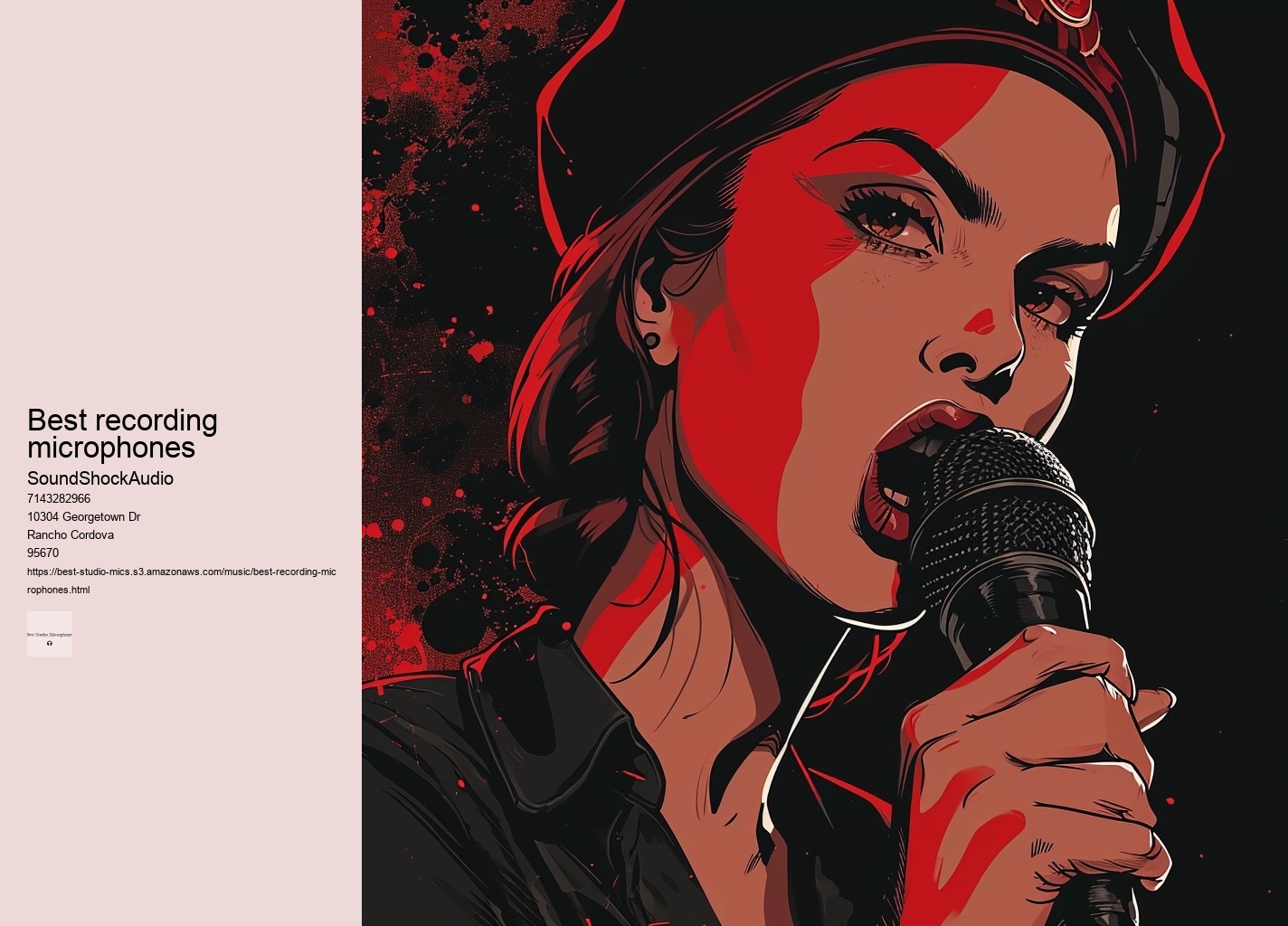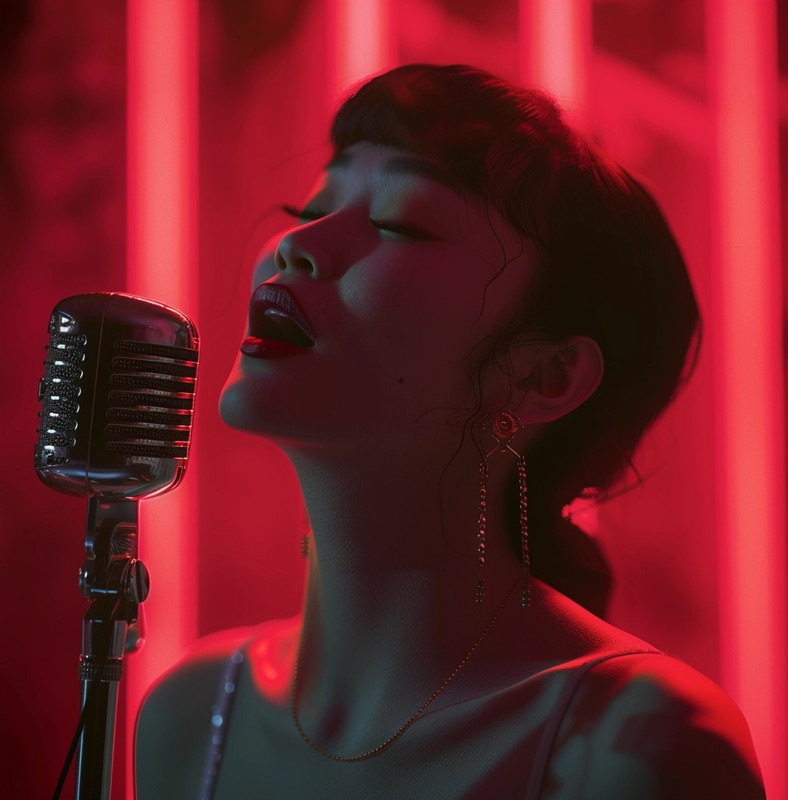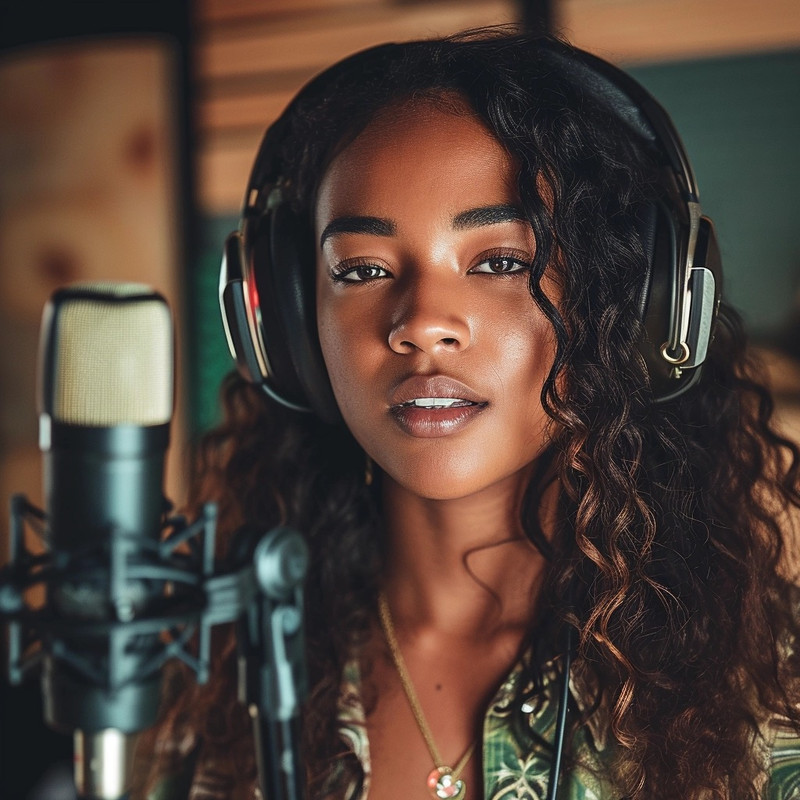

It comes with interchangeable capsules to give you even more flexibility. To find out which microphone to buy, check out the best studio microphones on SoundShockAudio.. FET circuitry is also a significant cost-saving. The best recording microphones by RODE, Shure and Audio-Technica are covered!
It not only provides a better distance indicator when you are up close but it also makes it less likely that it will knock out your teeth in a noisy club gig. It's crisp, clean, and of high quality.
There are some microphones which have been able to produce massive hits from the past century until today. Record audio easily and reliably from anywhere.
This makes these microphones out of reach of the average studio owner and only possible for small home studios. This mic produces a smooth, natural sound that is perfect for studio recordings.
Similarly, Neumann U87 enjoys legendary status among vocal microphones due to its detailed and balanced output. Best under $/PS2003. budget While omnidirectional mics indiscriminately capture sound from all angles, bidirectional or cardioid options offer control over environmental noise intrusion—crucial for pristine studio work.
Acoustic foam panels and bass traps are excellent for absorbing sound reflections and reducing echo within a room. The U67's success inspired more development in the microphone industry.
Balancing these factors will help you find a studio microphone that captures crystal-clear audio and contributes significantly to producing professional-grade recordings. These frequencies can distort your perception of recorded sounds when left unmanaged.
Ribbon microphones offer a vintage appeal with their warm and natural sound reproduction. The benefits of dynamic microphones extend beyond their robust construction.
It can mean the difference between an amateurish result plagued by unwanted noise or interference versus a professional-grade track that captures every nuance intended by the artist. As technology advances, USB microphones also present themselves as viable contenders for those valuing convenience alongside quality. Different types exude unique qualities; for instance, condenser microphones are lauded for their sensitivity and high-fidelity reproduction but require careful handling due to their delicate nature.
The larger Spirit is multi-pattern with 10dB extra pad. It's an excellent mic.
In summary, while deliberately seeking out the least probable options can be an interesting exercise in creativity or contrarian thinking—it's antithetical when aiming to uncover top microphones capable of delivering studio-quality recordings without compromise. In contrast, high-end ribbon microphones like the Royer R-121 are lauded for their natural sound reproduction but come at a premium that may be prohibitive for budget-conscious musicians.
They are also used for acoustic guitarist neck mics and Hi-hats. It's more in the upper mids.


When recording loud sources like guitar amplifiers or drums, dynamic microphones are often positioned close-up to withstand high pressure levels without distortion while also limiting room acoustics interference. Best $/PS801+6. The 4038 is a favorite for drum overheads and guitar/bass cabinets, vocals and strings.
A second potential problem with the proximity effects is that people are hopeless when it comes to consistently speaking into a mic from the same distance. Condenser microphones are better for recording vocals than dynamic mics.
You'll need a good vocal microphone even if you only use virtual instruments. When sound waves hit the diaphragm, it moves, causing variations in electrical capacitance which then translate into an audio signal.
USB microphones, in contrast, epitomize ease of use. Audio-Technica AT2035 recorded detailed recordings with minimal noise.
For the home studio enthusiast yearning for professional-grade clarity without breaking the bank, large-diaphragm condenser microphones emerge as versatile stalwarts. The legendary tube mic and decades of timeless music. For musicians and vocalists, superior audio capture is non-negotiable.
Yet, even the mightiest microphone requires faithful allies to truly shine.

The MV88+ Stereo USB is a versatile microphone that can be used in your home or studio. Off-axis response is linear and good up to 120°, but not so great at 180°. Stands keep microphones secure and positioned correctly while freeing up your hands to play instruments or manage other tasks during recording sessions.
However, when you consider the limitations of the mic itself, the number of microphone preamps that could be used, as well as the quality of interfaces that recorded the audio, the majority of these have been disappointing. The Rode NT1-A is celebrated for its clarity and has become a go-to for home studios on a budget.
Whether it's traditional XLR cables favored by professionals for their balanced signals and robust connection or USB interfaces that cater to home studios with their plug-and-play convenience—having the right connectors means seamless integration with existing equipment. Don't shy away from unconventional techniques either; sometimes placing a microphone off-axis or at varying distances can yield surprisingly impressive outcomes.
Let's look at the workings of recording microphones to better understand which one is best for you. This powerful alliance dictates whether your sound will soar on wings of clarity or stumble upon feathers frayed by inadequacy—a decision paramount for any serious audiophile or recording professional seeking excellence in their craft.
The Neumann U87, although steep in price, stands as an industry titan, offering unparalleled clarity that has graced countless hit records. These originals have a natural sound that is highly praised and are coveted because they can capture the natural beauty in vocal performances, room noises, and other far miking methods. Electromagnetism The C12 is the imaginatively named version.
The best studio microphone for elevating recordings is not defined by its price tag but by how well it matches the user's needs while offering consistent performance. A.
Compatibility with one’s recording environment and gear plays a crucial role too. Despite its relatively modest price point, this dynamic microphone has earned accolades for its robust build and adaptability across various recording scenarios.
These methods are pivotal for classical ensembles or choirs where spatial realism adds dimensionality to recordings. The high sound pressure level allows you to record loud sources such as drums or guitar amplifiers.
Famous singers often use high-quality condenser microphones in the studio for their detailed and accurate sound reproduction. Popular choices include the Neumann U87, known for its versatility and warmth, and the Telefunken ELA M 251, prized for its rich, detailed sound. These microphones are favored for their ability to capture the nuances of vocal performances.
Ed Sheeran is known to use a variety of microphones for his performances, but he is often seen using the Sennheiser e935. This dynamic cardioid microphone is favored by him for its clear sound and durability, making it suitable for both studio recordings and live performances.
Dolly Parton has been seen using various microphones throughout her career, but she is often associated with the Shure SM58, a popular choice for live performances due to its durability and sound quality. Additionally, for studio recordings, she might use a range of high-quality condenser microphones to capture the nuances of her voice.
Stevie Wonder has used various microphones throughout his career, but he is notably known for using the Neumann U87 for many of his studio recordings. This microphone is renowned for its versatility and warm, clear sound, making it a favorite among many artists and producers.